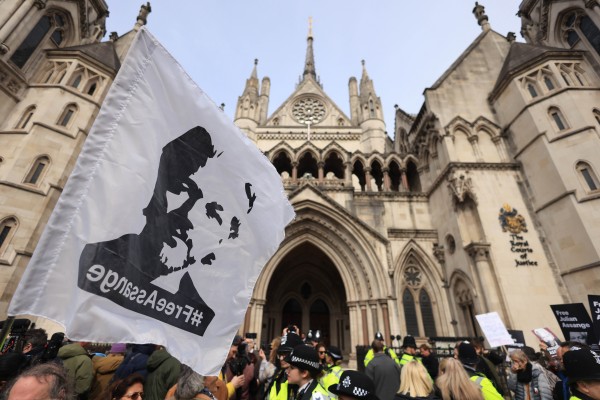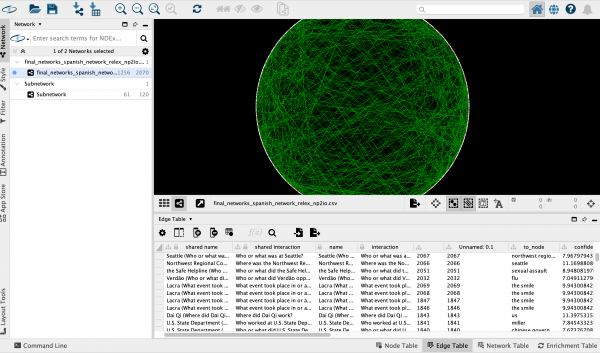Media professionals in Venezuela on Monday celebrated the National Day of Journalism, against the backdrop of serious press freedom concerns, including a lack of access to official sources, violence against journalists and governmental pressure against independent media. Despite the challenges to freedom of the media, participants expressed commitment to independent reporting.
“We deserve to celebrate this day because the exercising of our profession is … increasingly difficult,” National Journalists Guild of Venezuela (CNP) president Silvia Alegrett told IPI: “The government is violating its constitutional obligation to provide information, respect freedom of expression and guarantee the right to be informed. We do not have access to official sources, they do not give statistics to journalists and we are not satisfied with the information we are able to provide to our nation.”
In an illustration of the current media environment, Alegrett noted that nobody in Venezuela was explaining the health situation of President Hugo Chávez, who is recovering in Cuba after undergoing surgery on 10 June for a pelvic abscess. That has generated rumors and criticism in a polarized society which will see presidential elections in 2012 after 13 years under the same leadership.
Another example of a lack of official information related to a government assault on the El Rodeo prison complex, which began on 19 June. According to official sources, 22 people have died in the operation, but local NGOs speak of 67 deaths. “In the absence of official information, journalists are speaking with prisoners’ relatives, but when something is published in the newspaper, the government says it is not true,” Alegrett said. “They accuse us of sensationalist coverage … but there is no official information we can use.”
In another development, since January 2010 television cameras have not been allowed into Parliament. Only the government ANTV broadcaster is allowed to broadcast from inside the chamber, but it did not report on developments in Parliament last week. During a debate about the possibility of lifting the parliamentary immunity of MP William Ojeda – who also, as a journalist, reported on the situation in El Rodeo prison – and on investigating the press for allegedly promoting violence, transmission was suspended at the height of the debate. The lack of information led some media to report on false information.
“Not having access to official sources is very serious for a democratic country,” said Alegrett. “The intention is to hide information. The government is not organizing press conferences where it could be asked uncomfortable questions and only welcomes broadcasters that promote its propaganda. We are not willing to do that.”
Regarding violence against journalists, on 9 June journalists from El Correo del Caroní newspaper were attacked, insulted and threatened while they covered a violent incident in Puerto Ordaz, Bolivar state. Photographer William Urdaneta was kicked and pushed by workers of state-owned Ferrominera del Orinoco, who also tried to seize his camera. Ramses Siverio was insulted as well during a press conference in the company’s headquarters, IFEX reported.
On 11 June, reporter Maisduslin Younis and photographer Carlos León were beaten in the Bolivar courthouse by Ferrominera workers who tried to stop them from covering the appearance of their leader, Héctor Maicán, who has been linked to allegedly violent actions. A photographer for the weekly El Crítico, Lesly Martínez, was also prevented from covering the hearing when she was threatened by three individuals dressed in red and identified as government supporters.
On 13 June, reporter Naiyelis Garcés and photographer Jesús Bastidas, of the newspaper De Frente, were attacked by about 50 young people who burst into the Los Llanos Ezequiel Zamora Experimental University in the state of Barinas. While the journalists were reporting on the armed demonstrators, a group attempted to seize Bastidas’s camera and to delete the photographs, and also hit the journalists on the head. They also stole Garcés’s cell phone, used by the reporter to record the attack, and the threatened to burn down the newspaper’s facilities if any images were published.
On 15 June, Haymara Alfonso, a reporter for Anzoátegui TV, and Jesús Albino, a Televen correspondent in Anzoátegui state, were insulted while they tried to cover a protest in the state capital, Barcelona. Two unidentified individuals verbally attacked them, saying they were allies of the state governor, a member of the United Socialist Party of Venezuela. After Alfonso left, one demonstrator, allegedly a member of the Podemos party, reportedly spat at Albino.
On 17 June, a group of armed, masked men on motorbikes followed El Carabobeño newspaper photographer César Pérez and attempted to grab his camera while he was covering the alleged kidnapping of a regional government representative by individuals from Central University, in central Venezuela. The men used their firearms to destroy some areas of the university campus in an apparent attempt to rescue the public official, who was allegedly being held against his will. The armed men chased Pérez when they realized he was taking photographs. They attempted to seize his camera but the photographer managed to escape and hide in a laboratory, IFEX reported.
According to the Venezuelan Press and Society Institute (IPYS), 2010 was the most violent year on record for the press, with 147 incidents recorded between May 2009 and May 2010, accompanied by a climate of impunity. Moreover, the Andean Group of Freedom of Information said that between January and April 2011 there had already been 28 attacks in Venezuela.
In addition to a lack of official information and violence against journalists, another major concern is governmental pressure on critical media. “When they are in areas with pro Chávez rulers, they have to close because they do not receive enough advertising,” Alegrett explained. “Others change their editorial line, remove news programs and are transformed into broadcasters where information does not play an important role.” As a consequence, there are not enough jobs for journalists in Venezuela, there has been no recent investment in the media sector, and self-censorship is a growing trend.
On 12 May 2011, the Pedraza TV television station was taken off the air as a result of pressure exerted by Yusein Silva, the mayor of the municipality of Pedraza in the state of Barinas. One week later, the same thing happened to the Contrapunto program broadcast by the Fabulosa 107.7 FM radio station. The owner of Pedraza TV said the mayor, who is a member of the ruling party, issued an order for the station to be taken off the air in retaliation for the decision to cancel airtime purchased by Silva, since the mayor owed the station more than US$ 15,000 dollars (approx. €11,000).However, journalist Damián González, host of Contrapunto, said that the program was cancelled because of his news reports about alleged irregularities in the municipal government, IFEX said.
Finally, local Venezuelan media reported on Tuesday that police have solved the murder of journalist and political activist Wilfred Iván Ojeda Peralta, 56, who was killed on 16 May in Aragua state. The authorities said that two brothers killed him as revenge for a debt he owed one of them. According to witnesses and forensic evidence, Ojeda was called to the scene to settle the debt but was killed after he paid up. A tribunal issued an arrest warrant for Gabriel Araujo, 18, and Jesús Rafael Prieto Araujo, 22. The former was reportedly Ojeda’s friend and made the appointment with the columnist for El Clarín newspaper, while the latter pulled the trigger.


